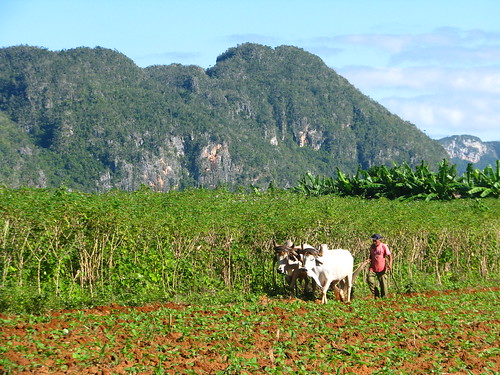By Peter Michael Rosset, Braulio Machin Sosa, Adilen Marıa Roque Jaime and Dana Rocıo Avila Lozano, Journal of Peasant Studies, January 13, 2011
Abstract: Agroecology has played a key role in helping Cuba survive the crisis caused by the collapse of the socialist bloc in Europe and the tightening of the US trade embargo. Cuban peasants have been able to boost food production without scarce and expensive imported agricultural chemicals by first substituting more ecological inputs for the no longer available imports, and then by making a transition to more agroecologically integrated and diverse farming systems. This was possible not so much because appropriate alternatives were made available, but rather because of the Campesino-a-Campesino (CAC) social process methodology that the National Association of Small Farmers (ANAP) used to build a grassroots agroecology movement. This paper was produced in a ‘self- study’ process spearheaded by ANAP and La Via Campesina, the international agrarian movement of which ANAP is a member. In it we document and analyze the history of the Campesino-to-Campesino Agroecology Movement (MACAC), and the significantly increased contribution of peasants to national food production in Cuba that was brought about, at least in part, due to this movement. Our key findings are (i) the spread of agroecology was rapid and successful largely due to the social process methodology and social movement dynamics, (ii) farming practices evolved over time and contributed to significantly increased relative and absolute production by the peasant sector, and (iii) those practices resulted in additional benefits including resilience to climate change.
Keywords: agroecology; Cuban agriculture; social movements; ANAP; La Via Campesina; Campesino-to-Campesino; agricultural extension
For a PDF version of the entire article click here.

No comments:
Post a Comment